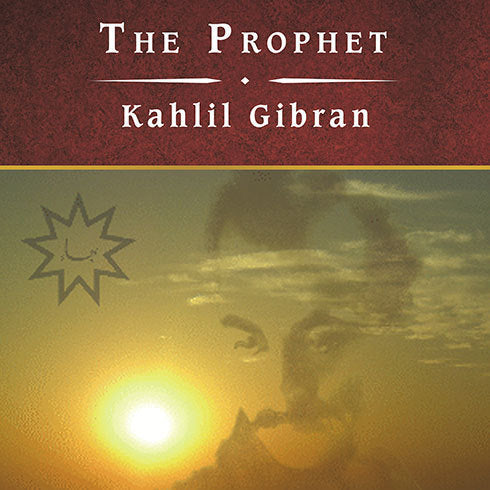
The Prophet
Read by
Jonathan Reese
Release:
09/01/2008
Release:
09/01/2008
Release:
09/01/2008
Release:
09/01/2008
Runtime:
2h 49m
Runtime:
2h 49m
Runtime:
2h 49m
Unabridged
Quantity:
“Free of dogma, free of power structures and metaphysics, consider these poetic, moving aphorisms a twentieth-century supplement to all sacred traditions—as millions of other readers already have.”
Amazon.com, editorial review
A BookRiot Pick of Best Audiobooks under Three Hours
Kahlil Gibran—poet, philosopher, and artist—was born in Lebanon in 1883 but spent his final twenty years of life living in the United States. The three books that compose this audiobook are collections of Gibran's aphorisms, parables, and poetic essays.
The first book, The Prophet, was originally published in 1923 and is considered Gibran's masterpiece. It is written in prose poetry in twenty-eight parts, and deals with such topics as love, freedom, good and evil, religion, and death. It is a mystical and intensely subjective work, presenting the human soul as essentially noble and good.
In The Forerunner, originally published in 1920, Gibran asserts that "nobody is to be blamed for our 'being' and 'having' but ourselves." Gibran makes it clear that we are our own destiny and not the toy of a blind fate.
Finally, the titular entity of The Madman, originally published in 1918, is not literally mentally unbalanced; on the contrary, he is perfectly healthy. His madness is only in the eyes of others. Gibran asserts that we tend to be what society expects from us, even though these expectations could be detrimental for the development of our self-identity. Oftentimes, we veil our true selves with masks out of fear of being ridiculed by others.
The first book, The Prophet, was originally published in 1923 and is considered Gibran's masterpiece. It is written in prose poetry in twenty-eight parts, and deals with such topics as love, freedom, good and evil, religion, and death. It is a mystical and intensely subjective work, presenting the human soul as essentially noble and good.
In The Forerunner, originally published in 1920, Gibran asserts that "nobody is to be blamed for our 'being' and 'having' but ourselves." Gibran makes it clear that we are our own destiny and not the toy of a blind fate.
Finally, the titular entity of The Madman, originally published in 1918, is not literally mentally unbalanced; on the contrary, he is perfectly healthy. His madness is only in the eyes of others. Gibran asserts that we tend to be what society expects from us, even though these expectations could be detrimental for the development of our self-identity. Oftentimes, we veil our true selves with masks out of fear of being ridiculed by others.
Release:
2008-09-01
2008-09-01
2008-09-01
2008-09-01
Runtime:
Runtime:
Runtime:
Runtime:
2h 49m
2h 49m
2h 49m
2h 49m
Format:
audio
audio
audio
audio
Weight:
0.0 lb
0.4 lb
0.5 lb
0.4 lb
Language:
English
ISBN:
9781400177943
9798200133062
9798200133079
9781400107940
Publisher:
Tantor
Tantor
Tantor
Tantor
Praise
